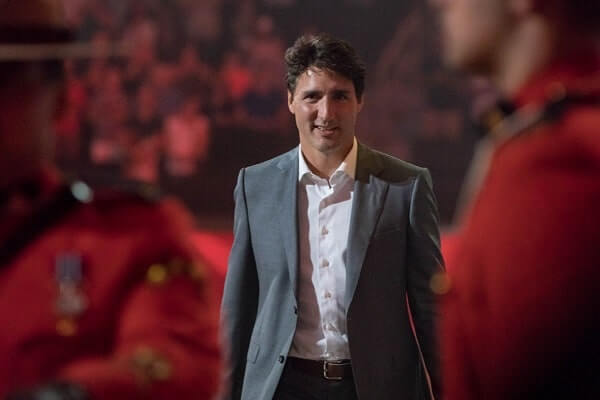Canada’s Prime Minister Justin Trudeau has accused the Indian government of being involved in the fatal shooting of Canadian Sikh leader Hardeep Singh Nijjar, raising concerns about a potential diplomatic crisis between the two nations.
Hardeep Singh Nijjar, a Canadian citizen and supporter of Sikh independence, was brutally gunned down outside a Sikh temple in Surrey, British Columbia, on June 18. Nijjar had been labelled a “terrorist” by the Indian government and was accused of leading a militant separatist group, allegations that his supporters vehemently denied.
Speaking in the House of Commons, Trudeau stated, “Canadian security agencies have been actively pursuing credible allegations of a potential link between agents of the Government of India and the killing of a Canadian citizen, Hardeep Singh Nijjar. Any involvement of a foreign government in the killing of a Canadian citizen on Canadian soil is an unacceptable violation of our sovereignty.”
Trudeau’s bold accusation has sent shockwaves through the political landscape and threatens to further strain the already complex relationship between Canada and India.
The Prime Minister revealed that he has briefed leaders of Canada’s closest allies, including the U.K.’s Prime Minister Rishi Sunak, French President Emmanuel Macron, and U.S. President Joe Biden, about the case. He urged the Indian government to cooperate with Canada in the ongoing investigation into Nijjar’s murder.
Foreign Affairs Minister Mélanie Joly escalated the situation by announcing the expulsion of a senior Indian diplomat, identified as Pavan Kumar Rai, who heads India’s foreign intelligence agency, the Research and Analysis Wing (RAW), in Canada. Joly emphasised the “troubling” and “completely unacceptable” nature of the allegations.
Public Safety Minister Dominic LeBlanc assured that the Royal Canadian Mounted Police (RCMP) is leading the murder investigation and pledged to hold the perpetrators accountable. The Mounties’ Integrated Homicide Investigation Team (IHIT) is overseeing the case’s progress.
The World Sikh Organisation of Canada voiced their support for Trudeau’s claims, stating that Nijjar had previously spoken of “threats to his life” and alleged targeting by India’s intelligence agencies. The organisation further asserted that “several other Canadian Sikhs are also understood to be under threat” and are on Indian “hit lists.”
Trudeau’s accusation comes after he raised the issue with Indian Prime Minister Narendra Modi during the G20 summit in New Delhi. The meeting between the two leaders was marked by tensions, with the Indian government releasing a communique expressing “strong concerns” about “anti-Indian activists” and “extremist elements” in Canada.
Canada’s response did not mention “secessionism,” and Trudeau’s subsequent accusation now provides clarity on the source of contention during the summit.
The situation took another intriguing turn when National Security Adviser Jody Thomas left India for London instead of returning to Canada with the delegation. A government source revealed that she informed the U.K. government of the worsening relations with India due to Canada’s evidence linking the Indian government to Nijjar’s death.
Opposition leaders also weighed in on the matter, with Conservative Leader Pierre Poilievre calling it “outrageous” and demanding transparency from the Indian government. NDP Leader Jagmeet Singh condemned the Modi-led government for its alleged pattern of “division, violence, persecution” and vowed to use “every tool” to bring those responsible to justice.
The public inquiry into foreign interference, initially prompted by allegations of Chinese meddling, may now extend its scope to investigate India’s actions in Canada, according to Singh.
B.C. Premier David Eby expressed deep concern and anger over the revelations and pledged full support for federal efforts to hold those responsible accountable.
The accusations by Prime Minister Trudeau have not only raised serious questions about the safety of Canadian citizens but have also ignited a potential diplomatic crisis that could have far-reaching implications for the relationship between Canada and India. As the investigation unfolds, the international community will be closely watching the developments in this high-stakes situation.
Tensions between India and Canada, the country with the world’s second-largest Sikh population after India itself, have been on the rise due to growing Khalistani movements.
Last year, India issued a formal demarche to the Canadian government, urging them to halt the so-called Khalistan referendum organised by a banned group in Ontario. The Indian government called upon Canada to take action against individuals promoting terrorism and violence against the world’s largest democracy.
Recently, the proscribed organisation Sikhs for Justice, led by designated terrorist Gurpatwant Singh Pannun, conducted the Khalistan referendum on September 10 at a gurdwara located in British Columbia, Canada.
Earlier this month, Canada halted discussions regarding a trade agreement with India that were originally planned to be finalized this year, seemingly due to allegations surrounding an assassination. At the G20 summit, Mr. Modi omitted Mr. Trudeau from the roster of leaders with whom he engaged in official bilateral meetings.
More: Gopal Baglay appointed as India’s High Commissioner to Australia





